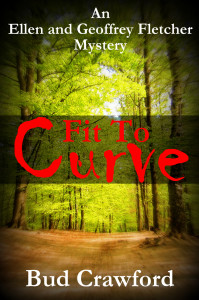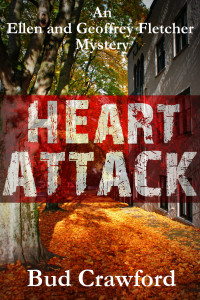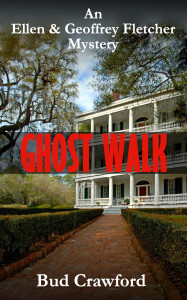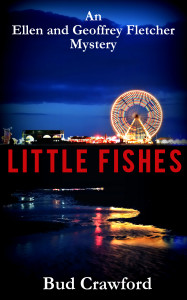Every book published, or symphony premiered, every play that opens, lives or dies on its reviews. Sometimes a work survives a spate of initial bad reviews, or the reviews spur revisions that improve it. Sometimes a rerelease catches a better moment in the zeitgeist. And sometimes a piece thrives despite universally bad reviews. More commonly enough good notices bring life, enough bad ones bring death.
Internet reviews are the same. And different. Reviewers aren’t qualified or institutional. Just people who loved the book or hated the salmon-on-a-cedar-plank, who thought the treble was set too high or didn’t like the way the salesperson talked to her toddler. Good or bad, they’re up forever. A ten-year-old comment might still be on top of the list. Sometimes they generate a spiral, usually downwards, of challenges and replies.
People who use reviews learn to assess the credibility of reviewers and pick up on which ones their own tastes align with. And some sites help by letting you access all the reviews somebody has written or by tracking whether other people scored their comments “helpful.” A long string of 5-star reviews may mark an especially good piece of work. But it may also mean the author has lots of relatives trying to help her out. 1-stars may mean something’s lousy, or show enemies or rivals lurking. A 3-star average may indicate mediocrity or an excellence that not everybody gets.
But it’s all you have, if you’re looking for something new to read, or a new restaurant to try. Your time and money are limited, so you’ll probably check out the higher-rated choices first. Reviews are the blood flow of Amazon: either they bring you some oxygen or your work turns blue. The people behind the work take all the comments personally and feel them sharply. Reviews can validate your efforts or knock you flat. If you’ve spent a year of your life making the best story you know how, hearing “well, that sucked” is going to sting. Obviously an idiot with no taste, but …
I was lucky, right off the bat, getting strong reviews that pleased me not just because they were favorable, but because they seemed to understood what I was trying to do and thought I had succeeded. But then came some harsh ones, some mean ones. Some stung because they touched what I thought the weak spots were—ah, got me! Some annoyed because they claimed I had failed at something I hadn’t tired to do, or violated a standard I wasn’t trying to meet. Should you give a bad review to a book because it isn’t the kind of story you like to read? Most people let it go, but others are on a mission to purify the world by marking everything that displeases them.
What’s fascinating is when the same quality gets an opposite response. Fit to Curve, my first book, starts slowly as I introduce my main characters to the world, for the series, not just for this story. Part of the craft of the novelist is learning what you can leave out (and for the most part: if you can, you should). But this was my first venture. It was the most common criticism, except for the reviewers who didn’t notice, didn’t care, or thought it was a good thing. My second title, Heart Attack, moves more briskly; it generated a different set of complaints. Here’s a selection of typical comments (some fragments, some whole, mostly from Amazon, a couple from Goodreads). Question: have they read the same book(s)?
Fit to Curve is a skillfully written mystery with complex characters and such a fascinating plot that I’m way behind on my chores.
This series is a favorite with interesting plots and wonderfully drawn characters. Wish the author would write more of them. The type of book you don’t want to end.
A bed and breakfast mystery. Super characters, well developed. You are waiting for the other shoe to drop. A mouth-watering, good read. I love the old lady with the sharp wit and mind. I’d like the recipes, too
I wasn’t sure I’d like this book at first, because the plot builds very slowly. But once I got into it, I was hooked. I liked the characters, and you get a lot of insight into them.
Good mystery, likeable characters, but overly long-winded. I put it down for days on end because it just seemed to go nowhere at times.
This is too fine a novel, as a novel, to be mired in the mystery/suspense ghetto. It’s a good mystery, with a complex plot, all the mystery trappings, but the characters are rounded and attractive. The theme seems to me to be a consideration of morality – not just sexual morality (or immorality), though there’s some of that too, for those who like to read such descriptions, but all kinds of morality: for how high a price might you sell your soul?
It pains me to say I just couldn’t get into this book. I found the characters were well written, and their personalities drew me in. However, with that being said, the plot just moved too slow for me.
Heart Attack is a great read! Just wish Ellen & Geoffrey weren’t quite so perfect; never do anything wrong, look great all the time, have wonderful jobs, and the only drawback to their marriage … she can’t have kids.
This couple are a great addition to the mystery genre. Sharp and interesting with a bit of humor and spice.
Snappy dialog. Geoff and Ellen are a great team. He has a definite intuitive method of assessing info and arriving at conclusions that baffle and irk his cohorts. Ellen is more conventional and together are a great team. Unusual mystery not easily solved.
I just read the first few pages and then deleted it from my Kindle. I am not a fan of books with nothing but sex and innuendo for a story line. It might have gotten better as it went along, but I couldn’t get far enough to find out.
The last was my favorite 1-star, from Amazon Canada. It’s a little bewildering, I’m really not sure what alarmed her. But it brought a huge brief spike in Canadian sales. Probably also some disappointed readers.
So, hey, if you’ve got something nice to say, say it. If you’re going to be mean, pause a second: do you need to? Have you spotted a rotten thing the world should be warned against, or just something not to your taste?
That’s my review: 5-stars.



